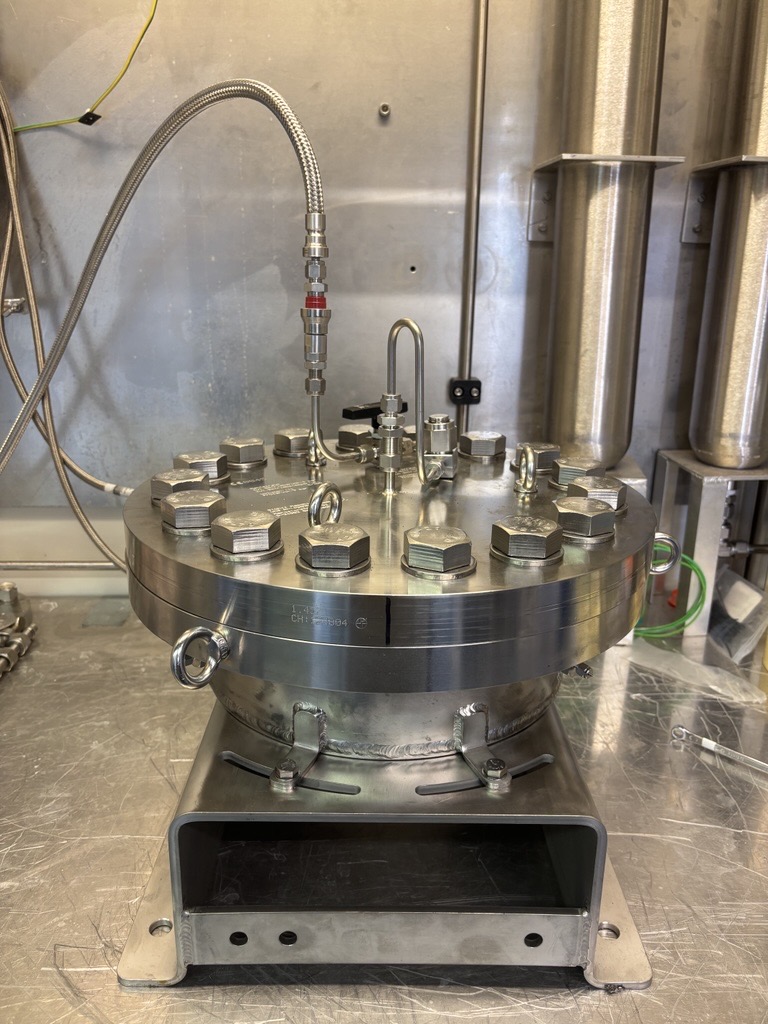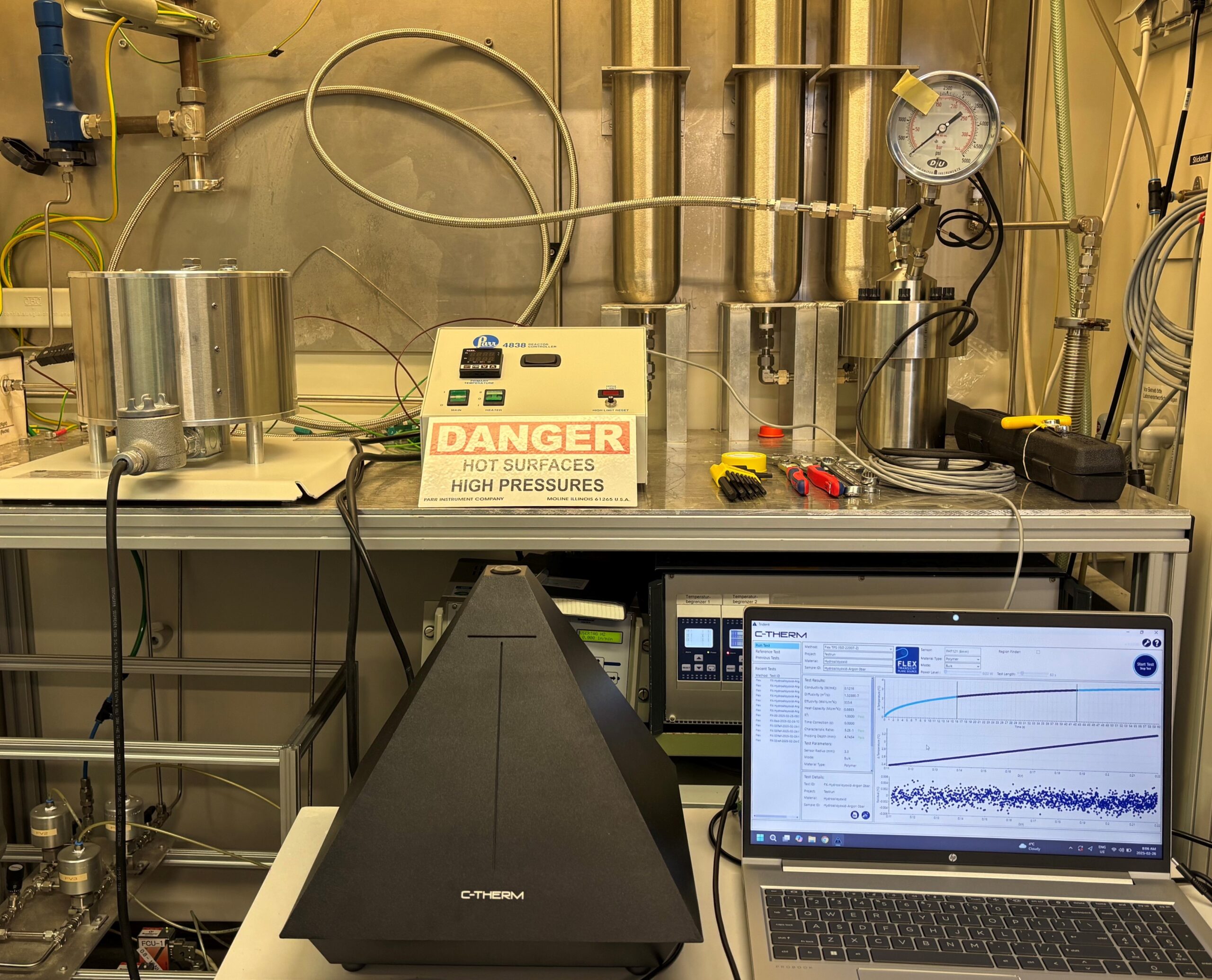

Low thermal conductivity leads to temperature gradients within the metal hydride storage tank, which slows down the reaction speed and reduces system efficiency. In extreme cases, local overheating can damage the material structure or compromise safety. It is therefore crucial to know the effective thermal conductivity of the hydride bed and to optimize it in a targeted manner – whether through material modification, the addition of thermal conductivity additives, or design measures in the storage system.
Investigating this parameter is therefore not just a theoretical task, but a practical key to the development of high-performance hydrogen storage systems that meet the requirements of a sustainable energy supply.
With various systems – from pressure vessels developed in-house that measure using the steady-state method to the latest commercially available devices that measure using the hot-wire method in needle-shaped or flat sensors – we are able to measure the effective thermal conductivity of a wide variety of materials not only in their unactivated state or under an argon atmosphere, as has been the case up to now, but also in a wide variety of states with regard to the temperature and hydrogen pressure on the system. This enables the further development of all metal hydride systems, taking this crucial parameter into account.
Contact:
Letzte Änderung: 19. November 2025

